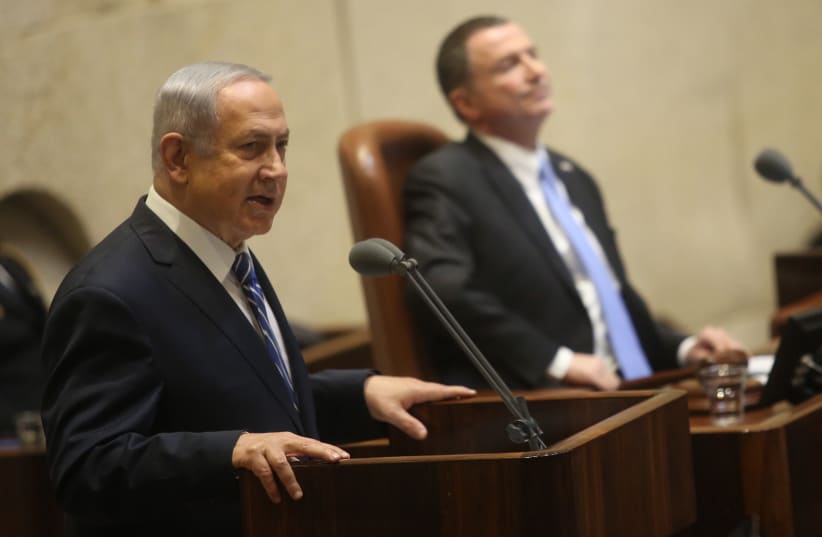One opposition MK after the other wondered – in light of the impending recommendations – why they were still going through the motions of talking about 2019 when 2018 had just started and it seemed uncertain that the current Knesset would make it through the year.
“This is a pathetic, irrelevant attempt by the government,” Zionist Union MK Itzik Shmuli said.
MK Nachman Shai, also of the Zionist Union, used a metaphor repeated by many other opposition legislators: “We are standing before an earthquake... We don’t know where things are going, but it’s clear that Israel after the recommendations cannot behave the way Israel did before the recommendations.”
Meretz lawmaker Tamar Zandberg wondered: “Do you think we can pass a budget a year in advance under a corrupt prime minister who has to go home? Let’s disperse this meeting. This budget is pointless, politically and morally.”
But that the budget is for 2019 is the point – to try to keep the coalition together through all the challenges of 2018.
The timing is off a bit for the prime minister. And since the budget was only up for a first reading Tuesday night, coalition parties may jockey for extra funds for their ministries and try to take advantage of Netanyahu’s weakness in the ensuing weeks before the final vote.
But these recommendations have been in the air since January 2017, when Police Commissioner Insp.-Gen. Roni Alsheich said they would be coming in a few weeks.
The coalition MKs knew they were coming, so we can still see the 2019 budget as a statement of intent to try to make things work.
Having a budget ready a year in advance, one that will last until November 2019, by which time an election would be legally required, was meant to remove a cause of friction between coalition parties.
Netanyahu has said more than once that this budget will bring stability to Israel, and part of that is political stability.
What’s left is to see whether all the partners in this carefully hatched plan stick to it.
